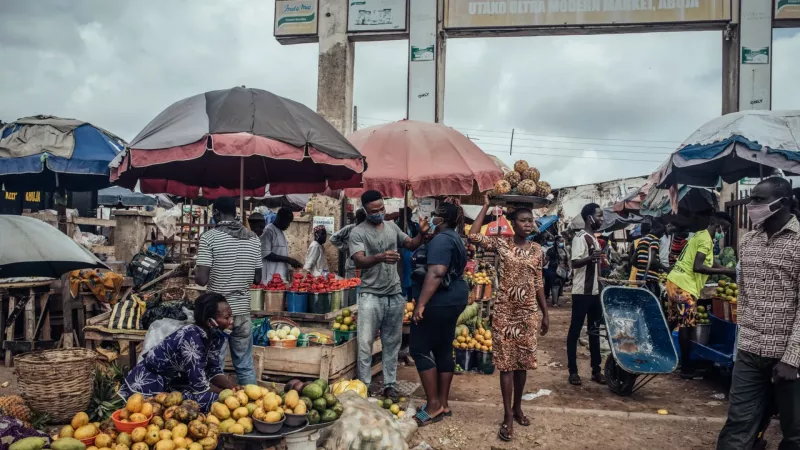The World Bank has ranked Nigeria alongside Afghanistan, Somalia, South Sudan and Yemeh as a global food security hotspot, raising a red flag on the government's ability to withstand heavy rains. It is not the first time Nigeria has made the list, but the World Bank's food security update says these countries "remain of greatest concern for the outlook for June to November 2023".The report obtained from the Bank's website also identified Haiti, Sudan and the Sahel region (Burkina Faso and Mali) as "the most affected" in the context of severe food shortages.Earlier, the World Bank said Borno and Yobe states are areas where food shortages may worsen and crisis situations later in the year. Two states in the northeast, according to the World Bank, can join the west and south of Katsina, north and south of Sokoto, north and central Zamfara and parts of Kaduna and others that have been included in the food crisis list.
Food prices in Nigeria are still above 24% according to the Consumer Price Index (CPI) from the National Bureau of Statistics (NBS) in April. Inflation data for the previous month have not yet been released, but economists estimate that headline inflation, driven by the food price crisis, will remain optimistic and reached around 30% in June due to the removal of subsidies.PMS prices have risen nearly 200% after the administration's centuries-old consumer support program for PMS ended. Transportation and other important services reacted as analysts believe that the new price may spread to other markets during the month.In a global context, the World Bank update emphasizes: “Household food prices remain high around the world. Information for the last month between January 2023 and April 2023 for which food price data is available shows high inflation in most low- and middle-income countries with inflation above 5% in 70.6% of low-income countries, 81.4% of low-income countries, and 84% of high-income countries, most of them in - get an increase in two digits.But it's a mix of hope and despair on the global food price index. The report acknowledges that since the last update on May 18, 2023, the price of agriculture, grain and exports has closed between four and three percent lower.

“In many of these countries, organized violence and armed conflict continue to be key drivers of acute food insecurity. Economic risks also factor into food insecurity trends, with the global economy expected to slow in 2023 amid monetary tightening in advanced economies, persistently high international commodity prices, and an overall reduction in donor support to offset global hunger. “Weather extremes remain significant drivers of food insecurity in some countries and regions,” the latest report highlights, adding that 81.4 per cent of lower-middle-income countries, where Nigeria belongs, are still contending with above five per cent food inflation rate.“In addition, 80.4 per cent of high-income countries are experiencing high food price inflation. The most-affected countries are Africa, North America, Latin America, South Asia, Europe, and Central Asia. In real terms, food price inflation exceeded overall inflation in 84.5 per cent from 161 countries where data is available.”




